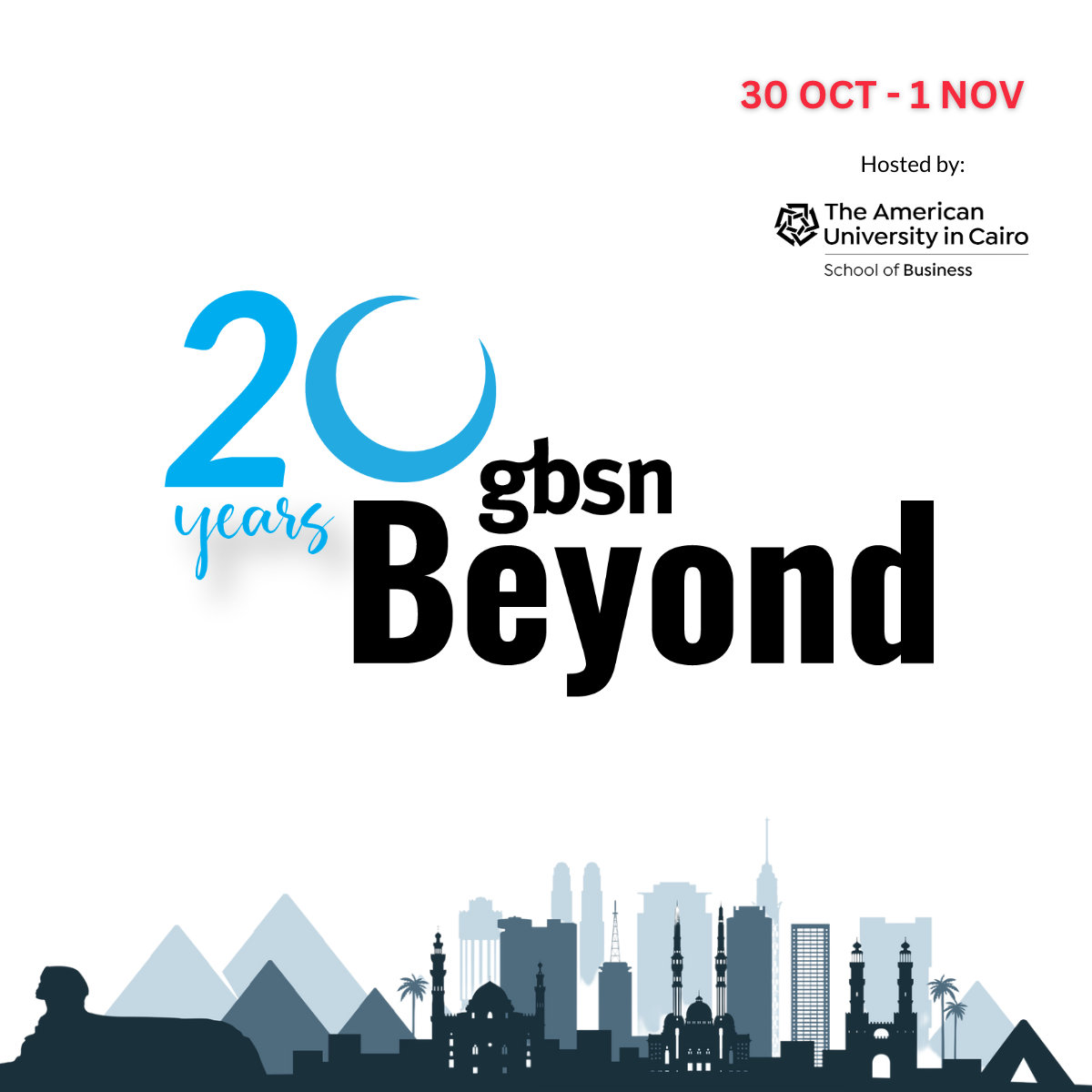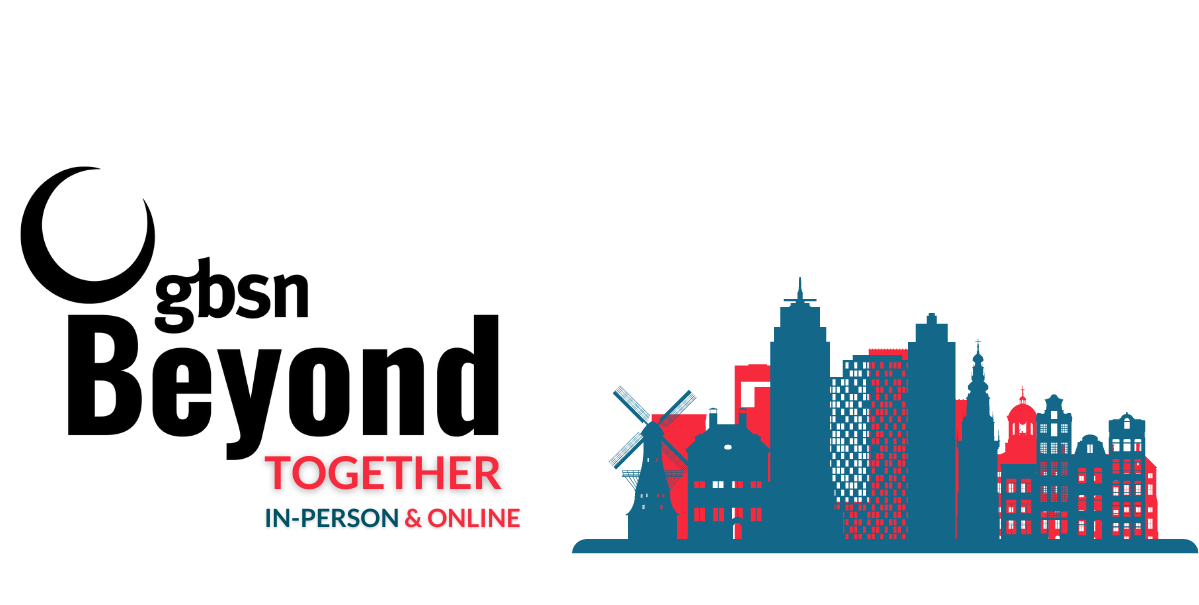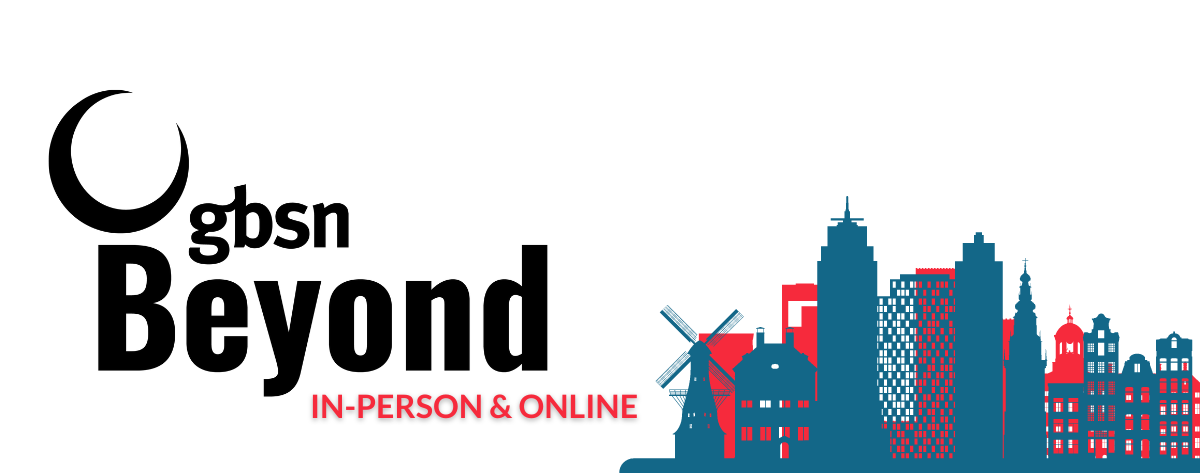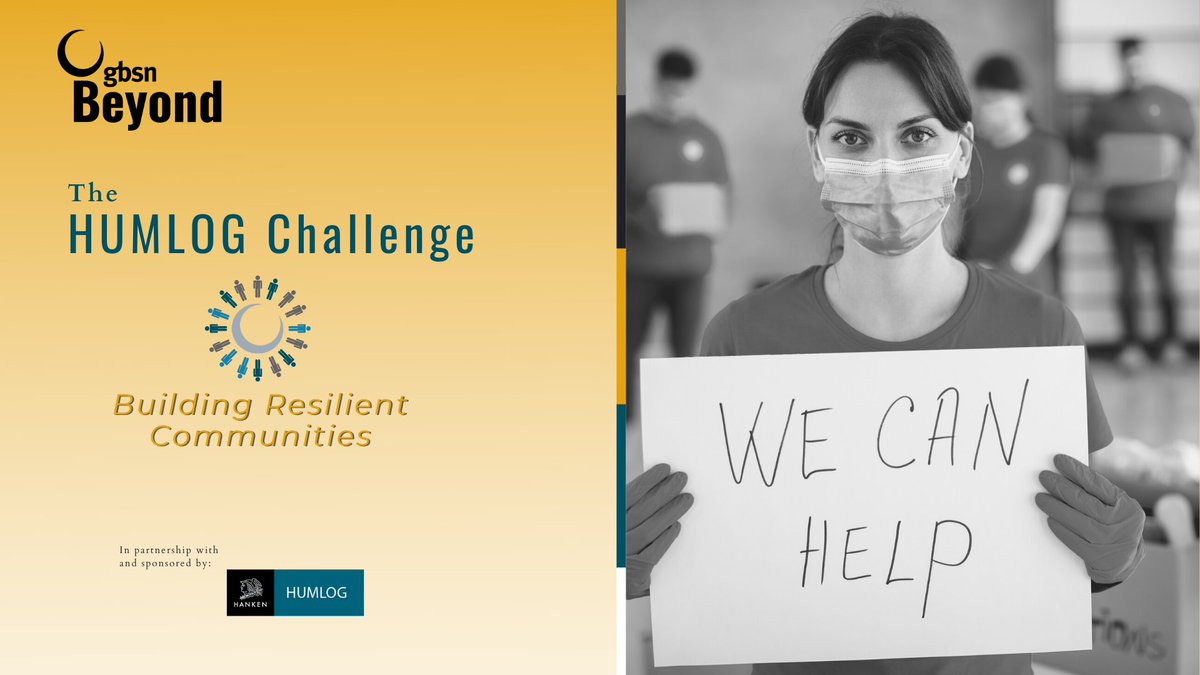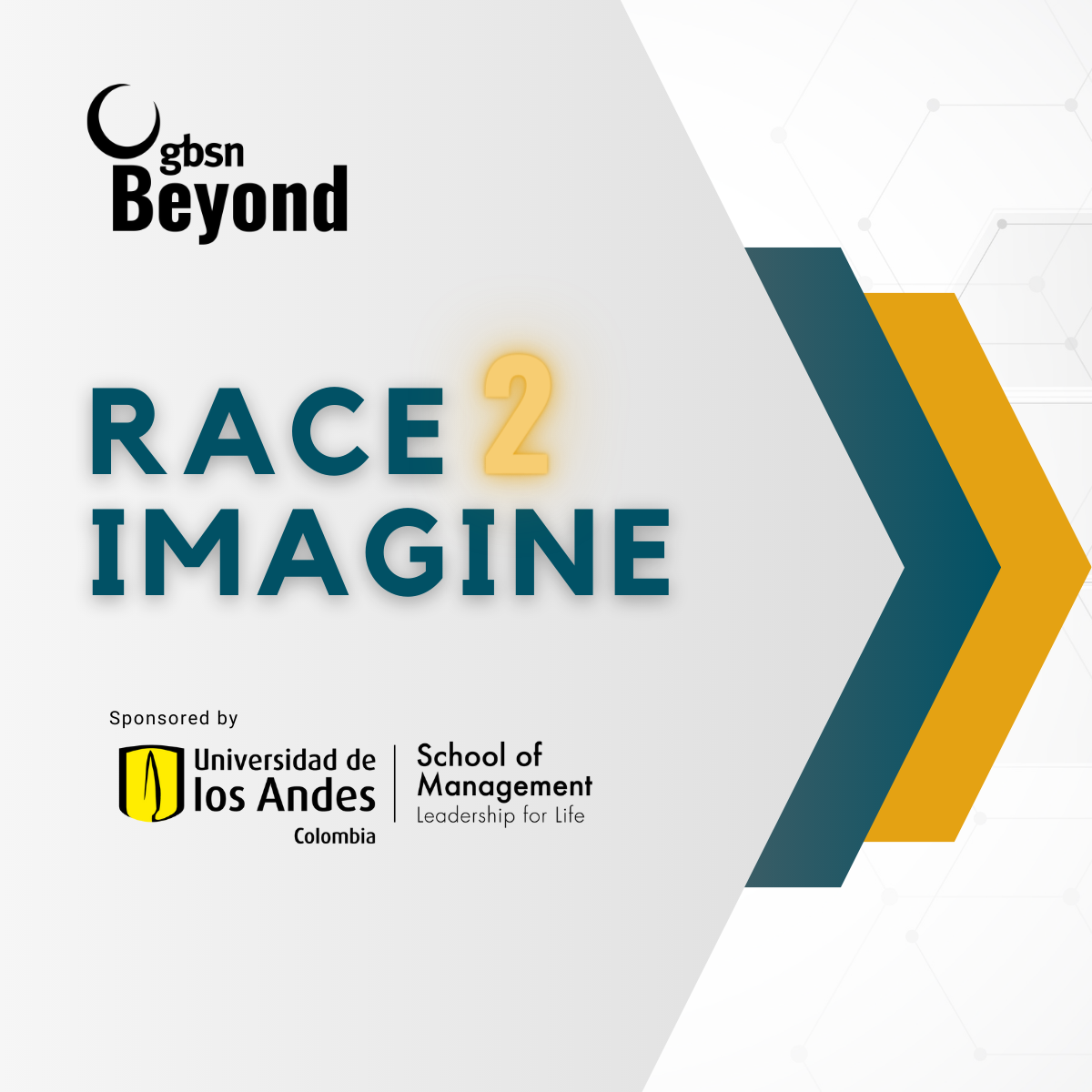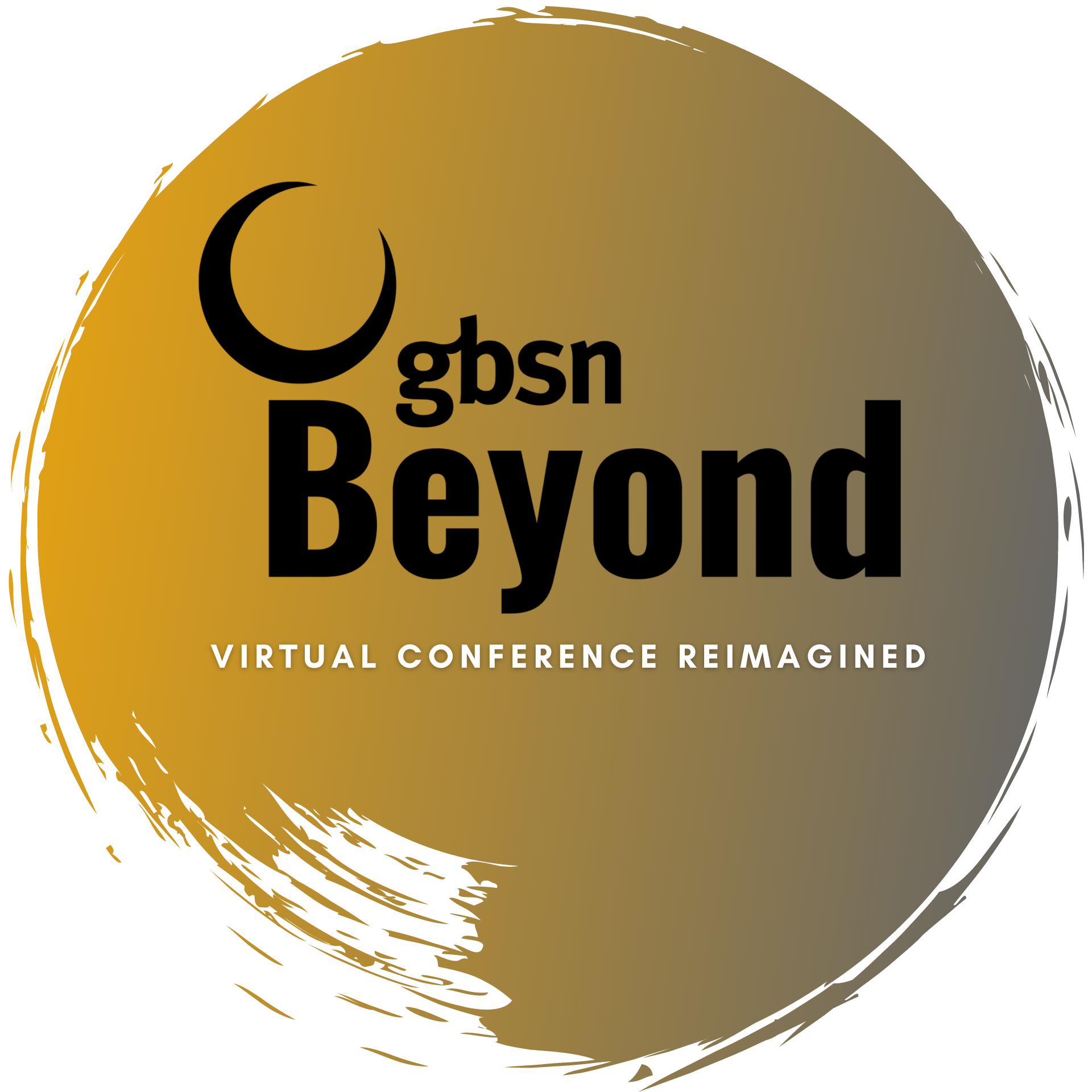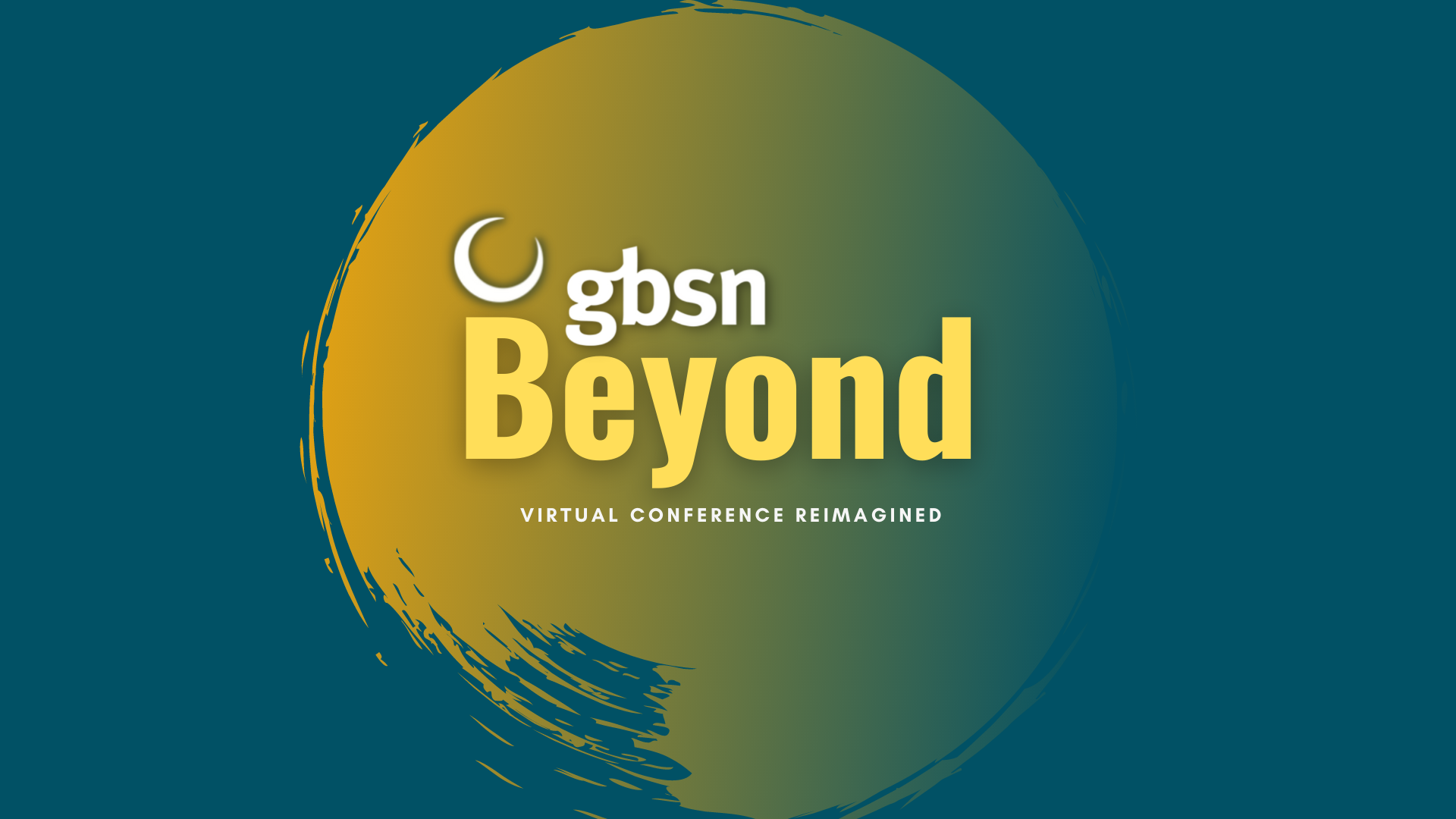
Sponsors
LEADERSHIP SPONSORS




IMPACT SPONSORS



COMMUNITY CIRCLE SPONSOR


INNOVATION CIRCLE SPONSOR

Partners


Get involved. Be noticed. Make a difference.
We have many sponsorship and partnership opportunities at GBSN Beyond, with a variety of options for visibility, engagement and collaboration. Because it is both in-person and online, GBSN Beyond convenes over 1,500+ online participants and over 200+ in-person participants from all corners of the world.
Move the Needle on the Mission
By supporting GBSN Beyond, your organization directly contributes to the acceleration of the development of new programs and the improvement of current programs and initiatives that will deliver solutions to critical challenges as well as offering activities that facilitate learning and development that helps to close the skills gap.
Share your Impact Story
Reach new audiences and solidify existing relationships by exhibiting virtually and / or in-person at GBSN Beyond’s Virtual Innovation Marketplace. Showcase your impact initiatives and your organization’s message on a global platform from one location.
Institutional Benefactor
Support students, faculty, administrators and entrepreneurs from the developing world by offering them the opportunity to participate in GBSN Beyond by becoming an institutional benefactor.
Be a Change Maker
Support activities that enable the creation of new knowledge, provide meaningful experiences, and build relationships that can transform management education, as well as provide broad visibility to your organization as a champion and change maker for economic and social development.
Sponsorship & Partnership
Each Circle of Giving package offers the opportunity to actively engage and support activities that directly contribute to making an impact on communities across the globe in the areas of healthcare, sustainable energy, human rights, sustainable finance, financial technology, and humanitarian logistics. In addition, build your organization’s reputation with students, faculty and leaders in global higher education as well as professionals from business and civil society.
Intersection of Business, Academia and Civil society
GBSN Beyond brings organizations to the center of business, academia, government, and civil society. Be at the table as GBSN Beyond participants collectively explore multi-sector collaboration in developing talent needed for society’s critical challenges.
Previous Sponsors


















1,500+
Virtual participants
40+
organizations
50+
Countries represented
200+
In-Person participants
“For over a decade, MIT Sloan and GBSN have shared the same ambitions and goals to broaden our reach and understanding of global challenges, opportunities, and approaches. GBSN’s relevant themed conferences, speakers, and interactive sessions, continue to challenge ourselves to understand, learn and research how higher education will positively impact our shared environment.”
– David Capodilupo, Assistant Dean, Global Programs, MIT Sloan School of Management

Why should I Sponsor or Partner?
Support GBSN Beyond to affiliate your organization with a dynamic, innovative experience that draws the attention of students, faculty and leaders from academic institutions; professionals from government, civil society and private industry from all over the world. Your support also helps GBSN continue its important work, improving management and leadership talent with education and training.
- Enhance your network with influential educators, students, and leaders in the development, corporate and public sectors
- Build awareness and maximize exposure of your organization, activities, impact and services to a global and diverse audience
- Observe and discuss the latest data, market trends and research findings on the future of global talent development, employability and education, including the impact of COVID-19
- Directly participate in the development of actionable solutions
Circles of Giving.
Choose from a variety of packages that offer various benefits and opportunities and gain the biggest value with the largest impact for your organization.
| Benefit Category | Leadership Circle | Impact Circle | Community Circle | Mission Circle | Innovation Circle | Exhibitor | |
|---|---|---|---|---|---|---|---|
| Event Access | x4 in-person conference tickets | x3 in-person conference tickets | x3 in-person conference tickets | x3 in-person conference tickets | x2 in-person conference tickets | x1 in-person conference ticket | |
| Unlimited virtual event access for students, faculty and staff | Unlimited virtual event access for students, faculty and staff | Unlimited virtual event access for students, faculty and staff | Unlimited virtual event access for students, faculty and staff | Unlimited virtual event access for students, faculty and staff | – | ||
| Benefactor | Offer x1 institutional registration for school in the developing world | Offer x1 institutional registration for school in the developing world | – | – | – | – | |
| Visibility | Branded keynote session sponsor | Branded plenary session sponsor | – | – | – | – | |
| Speaking opportunity | Speaking opportunity | – | – | – | – | ||
| full page AD in printed program | ½ page AD in printed program | Quarter page AD in printed program | Quarter page AD in printed program | – | – | ||
| Logo placement on website, event platform, and mobile app | Logo placement on website, event platform, and mobile app | Logo placement on website, event platform, and mobile app | Logo placement on website, event platform, and mobile app. | Logo placement on website, event platform, and mobile app | – | ||
| Exhibit Space | Prime Location, Virtual Booth with Live video chat, lead generation and data analytics | Prime Location, Virtual Booth with Live video chat, lead generation and data analytics | Virtual Booth with Live video chat, lead generation and data analytics | Virtual Booth with Live video chat, lead generation and data analytics | Virtual Booth with Live video chat, lead generation and data analytics | – | |
| Prominent Location, Table at in-person exhibition space | Prominent Location, Table at in-person exhibition space | Table at in-person exhibition space | Table at in-person exhibition space | Table at in-person exhibition space | Table at in-person exhibition space | ||
| GBSN Members Meeting Visibility | Access to GBSN members meeting | Access to GBSN members meeting | – | – | – | – | |
| Logo on members meeting webpage & all marketing materials | Logo on members meeting webpage & all marketing materials | Logo on members meeting webpage & all marketing materials | – | – | – | ||
| Sponsor Lightning Reel | 60-sec Video Reel played during plenary session (virtual and in-person) | 60-sec Video Reel played during plenary session (virtual and in-person) | 60-sec Video Reel featured on event platform, Whova | – | – | – | |
| Email Communications | Logo placement in all GBSN Beyond emails | Logo placement in all GBSN Beyond emails | Logo placement in all GBSN Beyond emails | Logo placement in all GBSN Beyond emails | Logo placement in all GBSN Beyond emails | – | |
| GBSN Podcast | AD placement in GBSN Podcast x1 episode OR participate in an episode w/ a thought leader from your organization | AD placement in x1 GBSN Podcast episode | – | – | – | – | |
| GBSN eNewsletter | Featured article in x1 eNewsletter issue | AD placement in x1 eNewsletter issue | – | – | – | – | |
| Promo Video Visibility | Opportunity to co- produce a Promo Video with GBSN Videographer | Opportunity to co- produce a Promo Video with GBSN Videographer | – | – | – | – | |
| Swag Bags | Include item(s) in the Virtual Swag Bags (i.e vouchers, software trials, online courses, publications, gift cards, etc.) | Include item(s) in the Virtual Swag Bags (i.e vouchers, software trials, online courses, publications, gift cards, etc.) | Include item(s) in the Virtual Swag Bags (i.e vouchers, software trials, online courses, publications, gift cards, etc.) | Include item(s) in the Virtual Swag Bags (i.e vouchers, software trials, online courses, publications, gift cards, etc.) | Include item(s) in the Virtual Swag Bags (i.e vouchers, software trials, online courses, publications, gift cards, etc.) | – | |
| Include item(s) in the swag bags for the in-person conference | Include item(s) in the swag bags for the in-person conference | Include item(s) in the swag bags for the in-person conference | Include item(s) in the swag bags for the in-person conference | – | – | ||
| Add-on for Engagement | Choice of one Be Remembered add-on opportunity | Choice of one Be Noticed add-on opportunity | Choice of one Be Involved add-on opportunity | – | – | – |
Add-On for Engagement
How it works: The following add-ons provide sponsors with additional visibility and engagement with conference participants and are available on a first come, first served basis. Sponsors must choose a base sponsorship circle before they are eligible to select an add-on. Leadership, Impact, and Community Circles of Giving each come with one free add-on as listed. Extra fees will be associated if multiple add-ons are selected.

Be Remembered
Included in Leadership Circle of Giving
Conference Bags (1) – Be the brand that means business. Bags branded with your logo filled with conference materials for each participant to use and take home. Portfolios provided by GBSN.
Cocktail Reception & Gala Dinner (2) – Be the brand behind GBSN Beyond’s signature networking event. The annual Gala Dinner is where attendees enjoy local cuisine, entertainment, and networking. GBSN coordinates promotion, catering, and logistics.

Be Noticed
Included in Impact Circle of Giving
Health & Well Being Activity (1) – Be part of participants’ health and well-being experience. Brand a morning bike ride, yoga session, meditation session, etc. Work with GBSN to incorporate other forms of visibility.
Post-Conference Site Visit (1) – Be part of participants’ Cairo experience. Brand the post-conference site visit on November 1 for up to 15 people (i.e. Networking Tour of Pyramids, or Cruise down the Nile sponsored by your company.)
Opening Welcome Reception (2) – Be the branded sponsor of the event that kicks off the conference. GBSN coordinates promotion, catering, and logistics.

Be Involved
Included in Community Circle of Giving
Networking Tea Break (4) – Be the break they’ve been waiting for. Branded signage featured throughout food service area.
Networking Lunch (2) – Provide the mid-day meal they’ve been waiting for. Branded signage featured throughout food service area. Lunch will be delivered networking style.
Transportation (1) – Branded sponsor of the transportation between conference events. GBSN coordinates logistics for bus rentals and transfers.
Wifi (1) – Branded sponsor of the wifi available to participants within the venue.
PPE Supplies (1) – Branded sponsor of PPE supplies, i.e. masks and sanitizer provided to conference participants.
“The reason that we partner with GBSN is because we share a common worldview. Most notably, we have the common goal of developing leaders who can apply international best practice with local relevance. We do this as a business, but we also do it as a philanthropy.”
– Michael Bzdak, Corporate Contributions, Johnson & Johnson
Why should I sponsor or partner?

Support GBSN Beyond to affiliate your organization with a dynamic, innovative experience that draws the attention of students, faculty and leaders from academic institutions; professionals from civil society and industry from all over the world. Your support also helps GBSN continue its important work, improving management and leadership talent with education and training.
Supporting GBSN Beyond allows you to:
Enhance your network
with influential educators, students, and leaders in the development, corporate and public sectors.
Build awareness and maximize exposure
of your organization, activities, impact and services to a global and diverse audience.
Observe and discuss
the latest data, market trends and research findings on the future of global talent development, employability and education, including the impact of COVID-19.
Directly participate
in the development of actionable solutions through collaboration, innovation, and learning.
Visibility as a change maker
in sustainable economic and social development efforts.
Institutional Benefactor
By becoming an Institutional Benefactor, you not only award access to all students, faculty and administrators from your institution to participate in GBSN Beyond, but you also provide the opportunity to another institution’s students, faculty and administrators to participate in GBSN Beyond. In addition, Institutional Benefactors have the opportunity to develop and host a session or activity for both institution’s faculty, students or administrators including your own. GBSN will support the coordination and communication in addition to providing the platform.

Event Partner

Become a GBSN Beyond association or content partner and offer your community the opportunity to engage with global leaders in academia, government, and industry to collectively explore the critical role of business and entrepreneurship education in our global future. By becoming a partner, you commit to supporting GBSN Beyond through communication and promotion. In addition, event partners can offer their member base a 20% discount on registration.
This partnership is designed as a way for organizations to collaborate and exchange opportunities, resources and services with each other. GBSN Beyond can provide meaningful opportunities of engagement for your stakeholder base.


